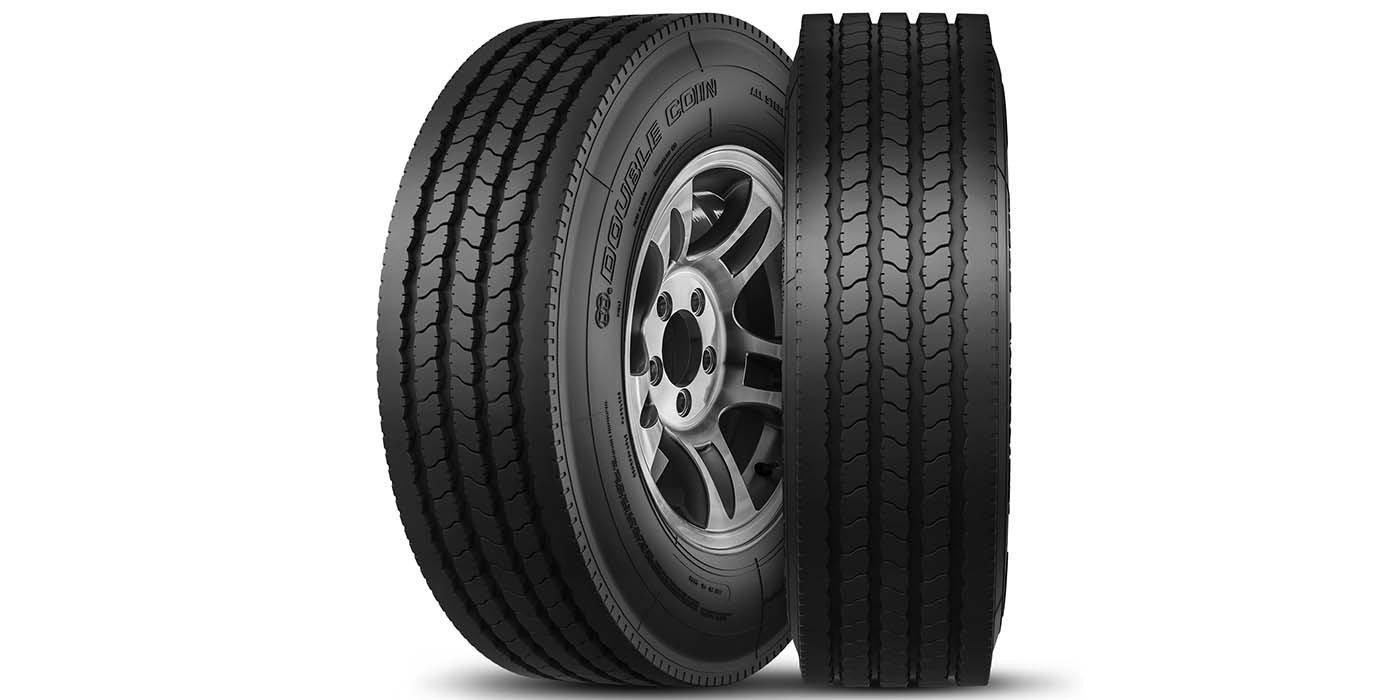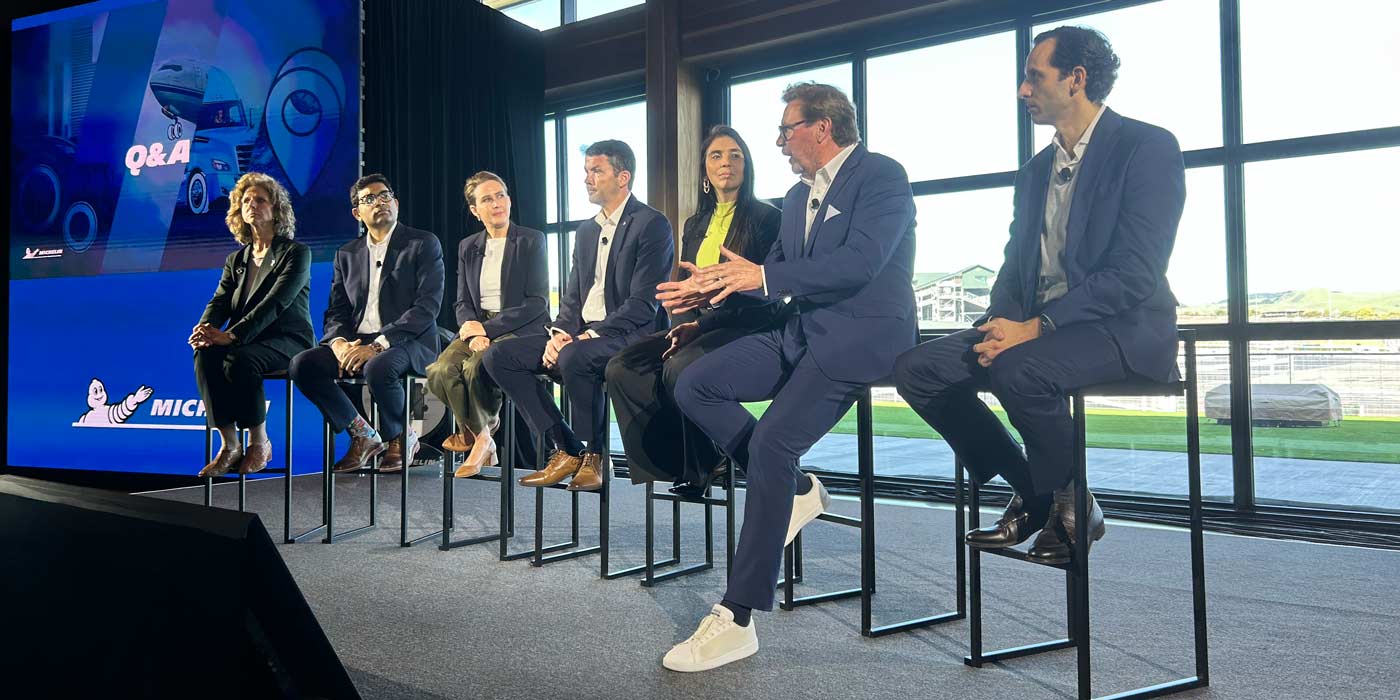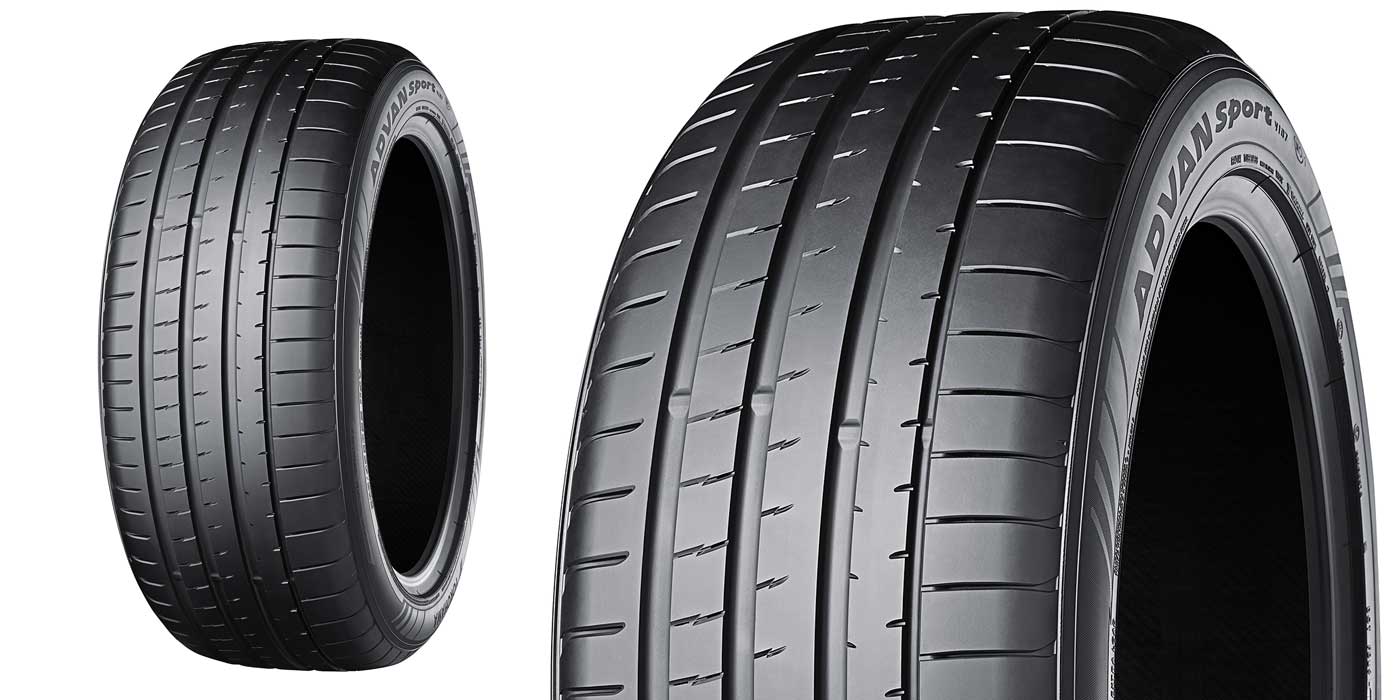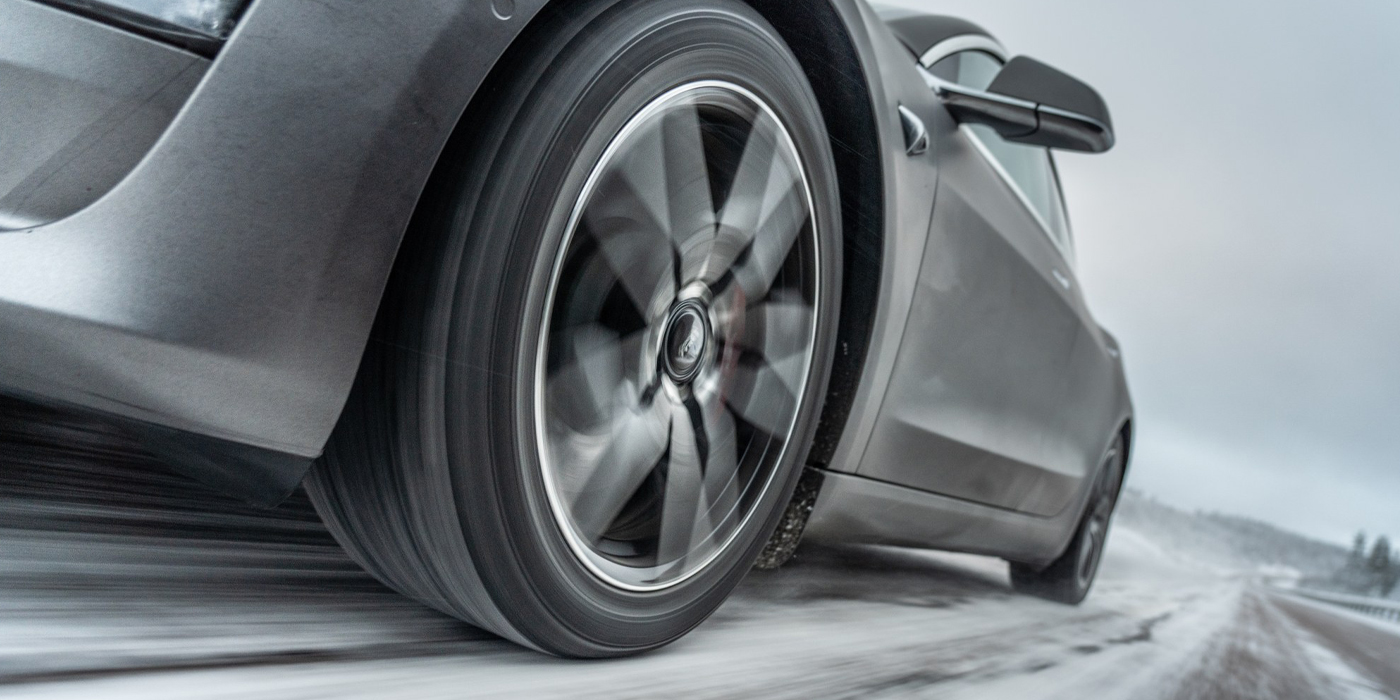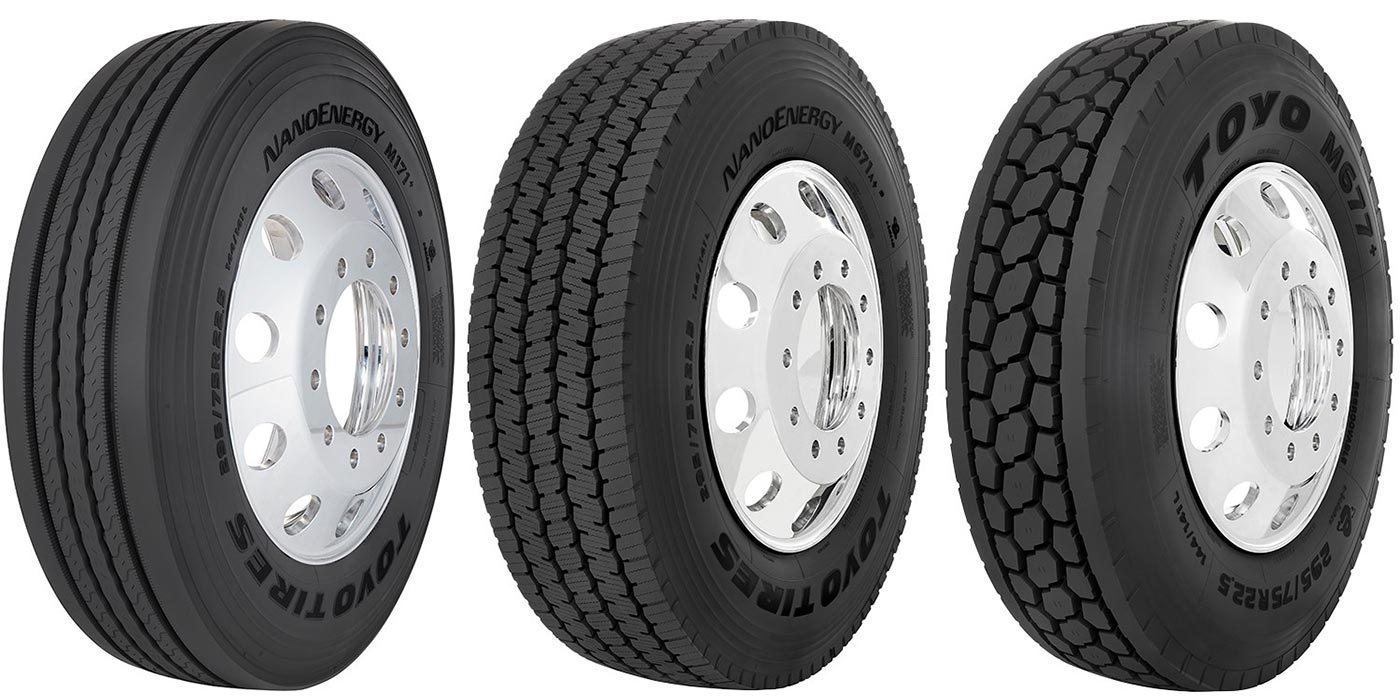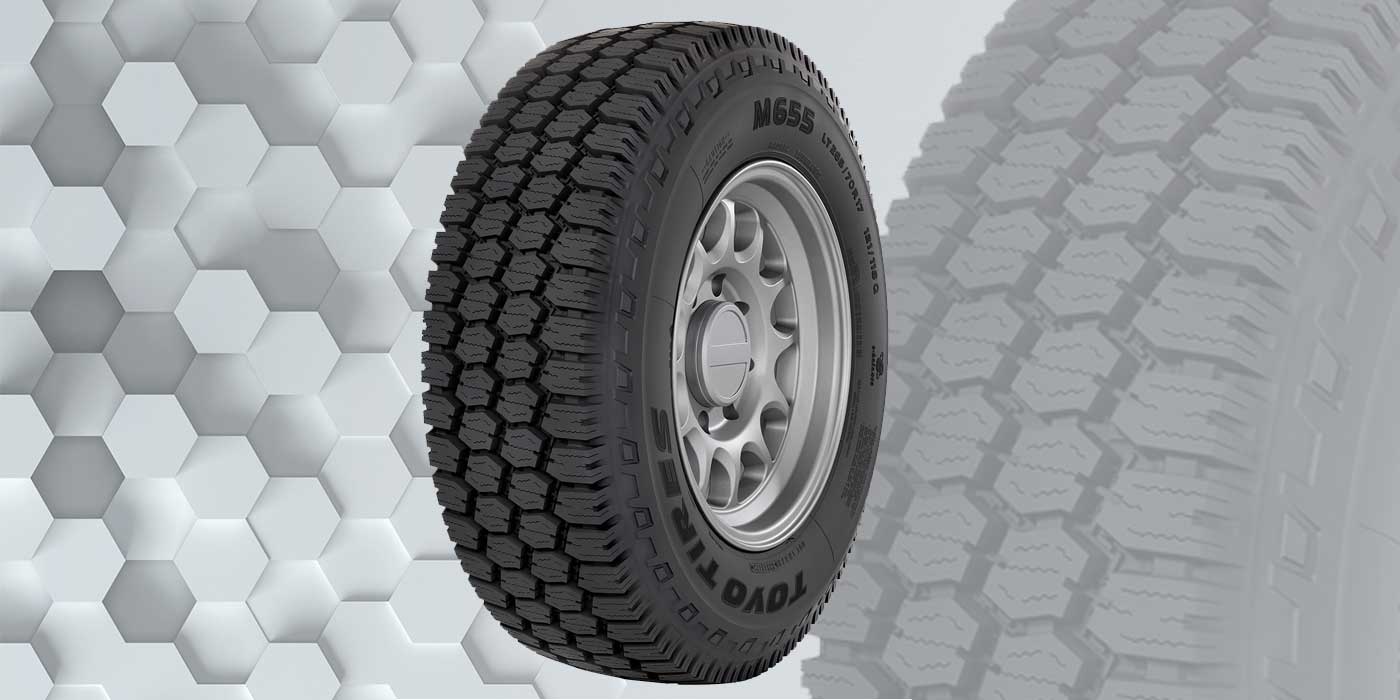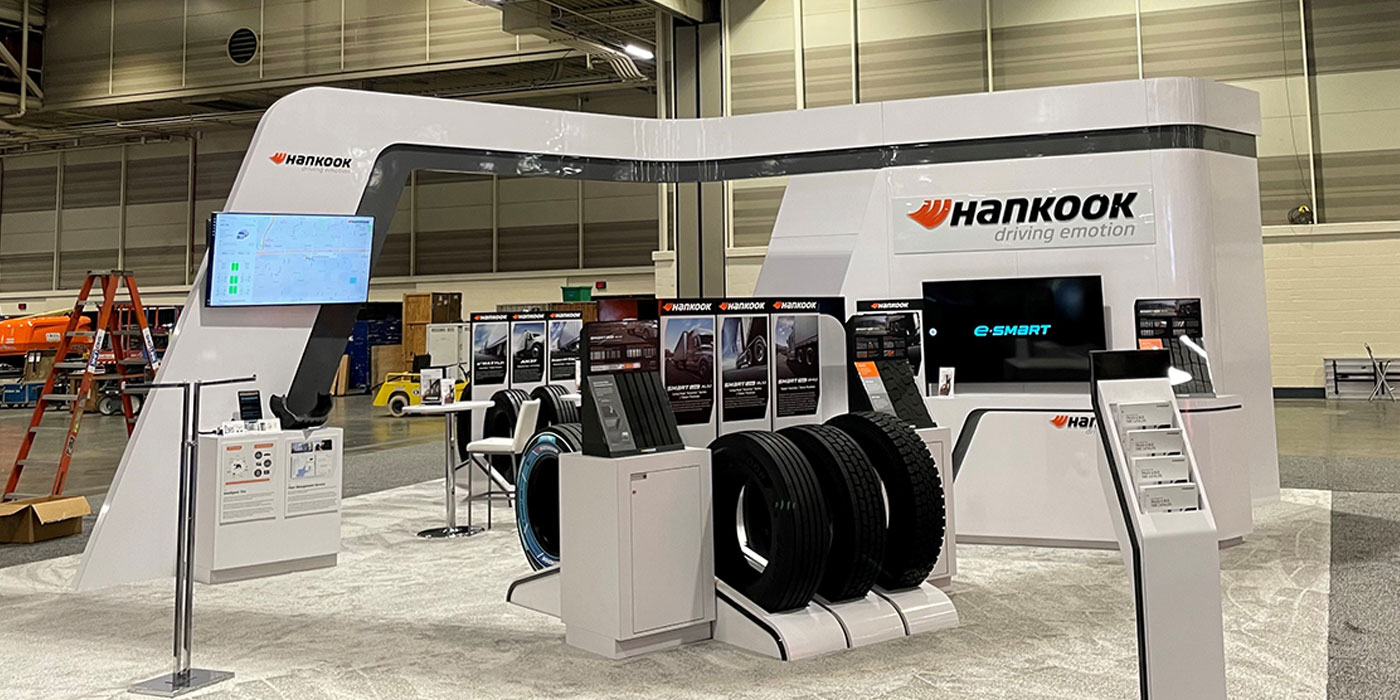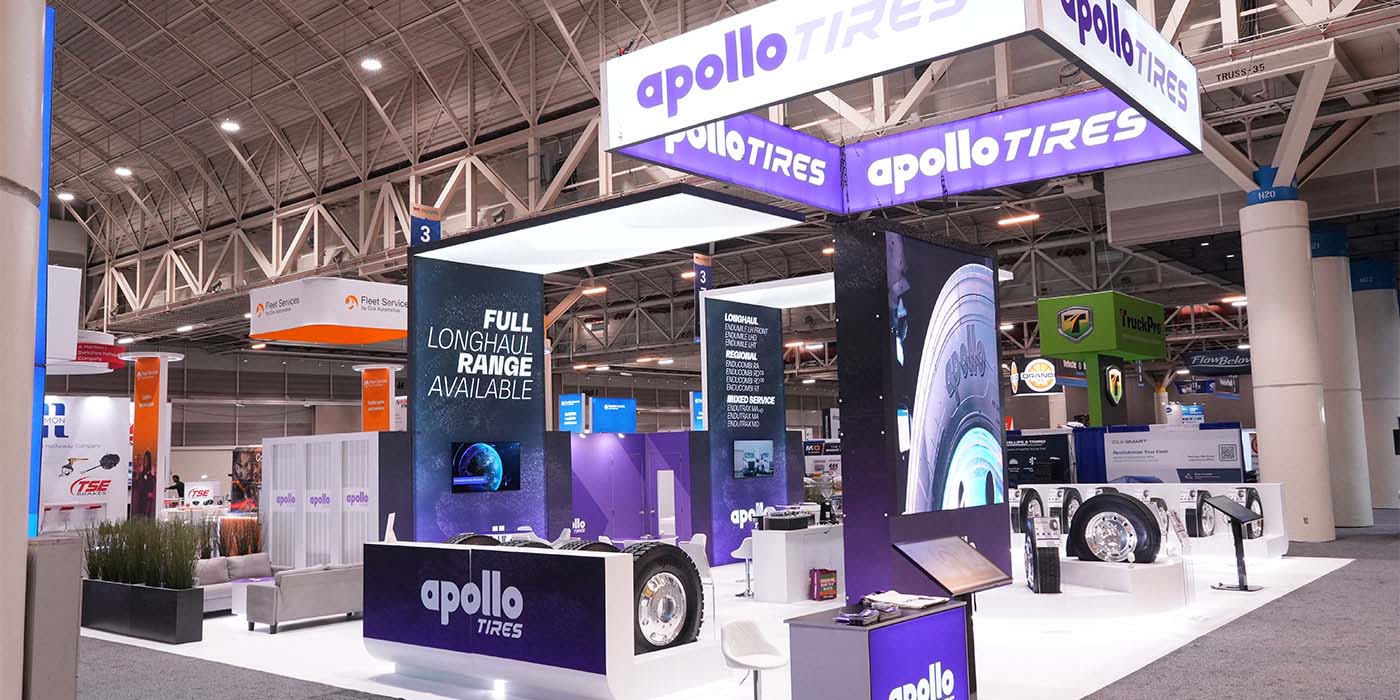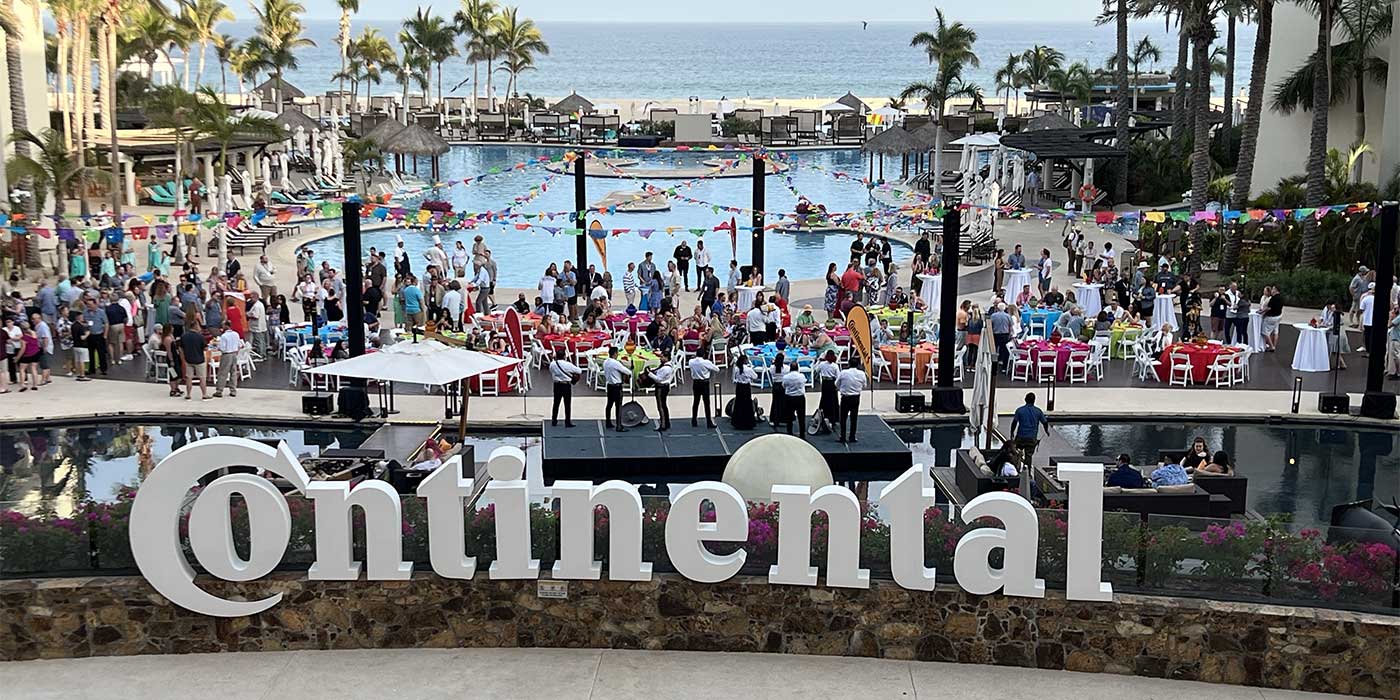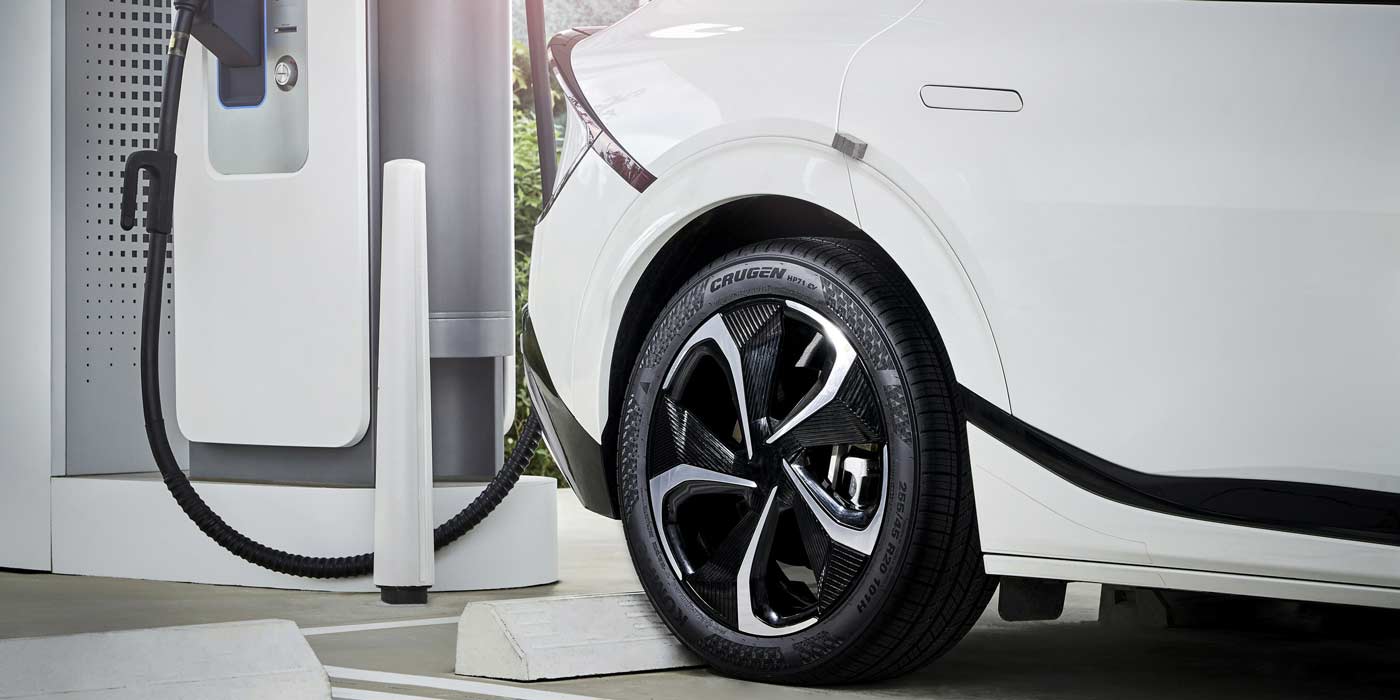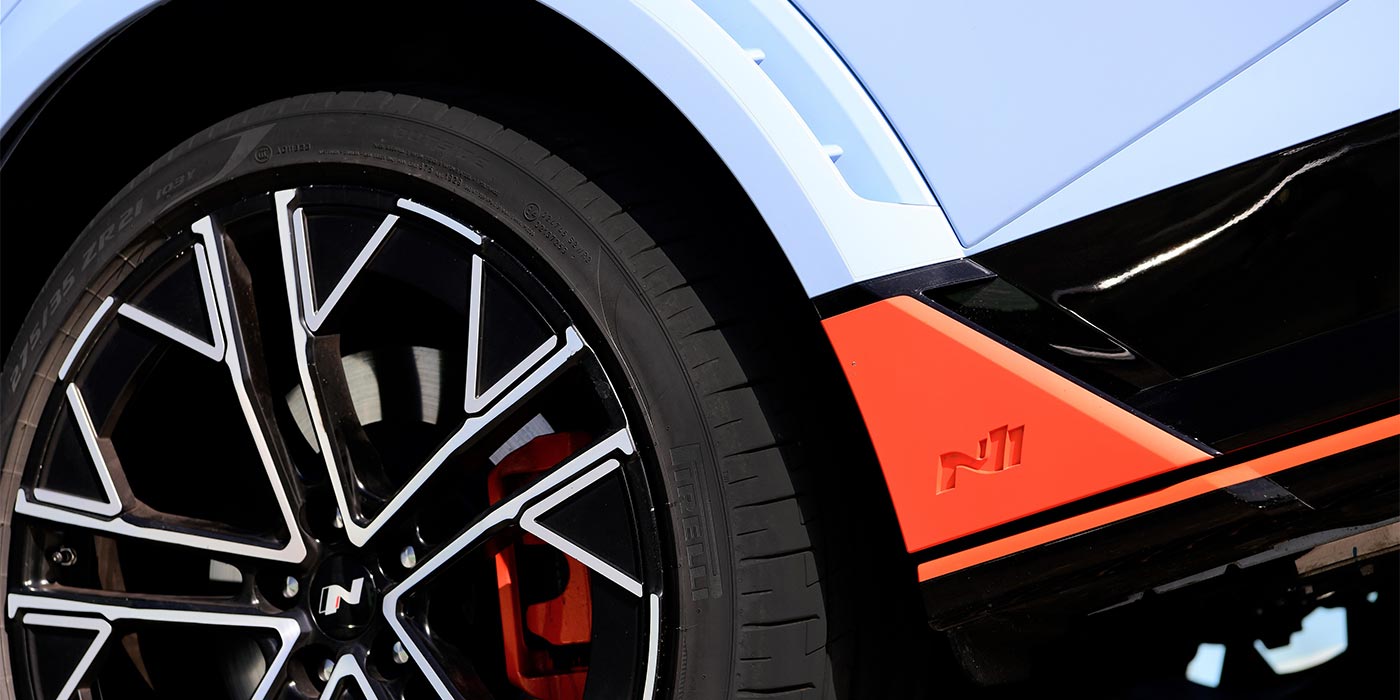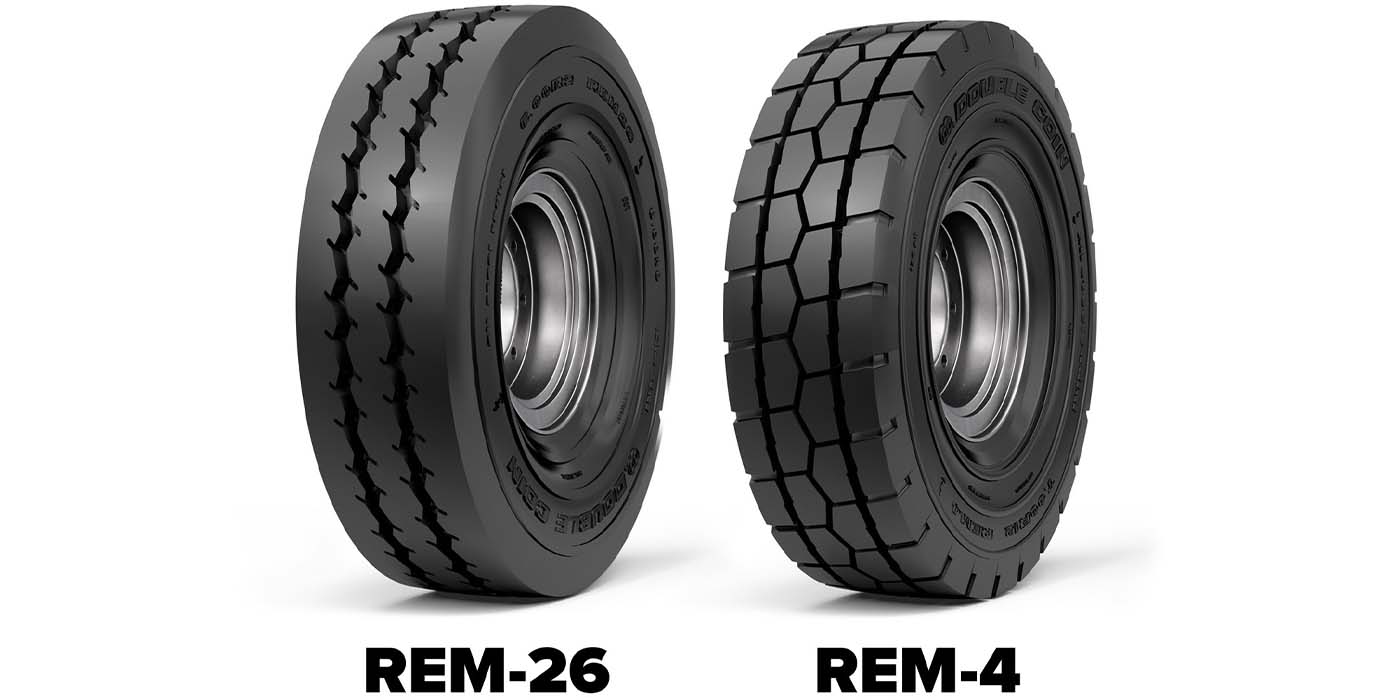“We hang on to our tire dealership relationships for dear life,” says Gary F. Petty, president and CEO of the National Private Truck Council (NPTC). Petty presumably speaks for most private fleets when he says, ®a lot of them rely on tire dealerships for servicing the tire function. They need that special expertise.®
Without question, tires are integral to fleet operations. Let the numbers speak for themselves: For every 2% of tire deflation, the cost to a fleet, annually, is more than $500 per wheel, according to Federal Motor Carrier Safety Administration (FMCSA) data.
Considering a “small” fleet might operate 600 tractor/trailer combos, equipped with about 11,000 tires, that adds up to some serious cash. And, according to Al Cohn, technical marketing manager for commercial tires at the Goodyear Tire & Rubber Co., tires are a fleet’s number-two operating cost, next to fuel.
Even though tires and tire management are so important to commercial trucks, they are essentially a distraction from a carrier’s core mission – providing logistical services. Whether private or for-hire, short-haul LTL (less-than-truckload) or long-haul TL (truckload), motor carriers essentially have one goal ®“ getting product to market in a timely fashion.
“They are in the business of hauling freight,” says Cohn. ®They’re not tire experts,® he says. And, for the most part, they don®™t want to be. ®Fleets want to be taken out of the tire business as much as possible,® Cohn insists. ®By working with tire professionals, fleets can reduce tire costs significantly.®
Why such a push to reduce costs among fleets? The answer’s clear if you consider just a few statistics:
®′ Insurance costs for fleets have skyrocketed. Some carriers’ rates have increased up to 800%, according to Jeff Ryan, principal at Tigris Consulting, a supply chain management consultancy.
®′ Fuel costs continue to rise. American Trucking Associations (ATA) estimates that each $0.10 rise in diesel costs triggers 1,000 bankruptcies among trucking companies.
®′ Federal regulations, including new EPA emissions standards that take effect in 2007, may force a switch to low- or no-sulphur diesel fuel, further exacerbating fuel costs.
®′ Recently enacted emissions standards have also caused the price of engines, and, therefore, trucks to rise.
®′ An improved economy means increased freight levels, and vice versa. ATA’s Truck Tonnage Index, which tracks freight volumes, rose to a record high in March.
®′ The FMCSA estimates that the trucking industry may be short some 80,000 drivers. To deal with this driver shortage, carriers have had to increase pay to retain their drivers, increasing operating costs in the face of continuing thin margins.
Argument For Outsourcing
Investment banking firm Morgan Stanley expects cost per mile for TL carriers to rise approximately 3% to 6% this year due, in part, to the above trends. Though some industry observers expect carriers to pass along some of these costs to shippers, fleet managers continue to maintain a cost-cutting mindset.
Consider this: If fleet owners can’t find enough drivers, how can they possibly consider hiring tire technicians trained to handle every wheel position in their fleets? Recruiting efforts focus on finding drivers, not maintenance and repair technicians.
“The economic basis for outsourcing usually involves reducing costs, increasing productivity or a combination of both,” says Dave Kolasinsky, manager of truck tire marketing at Bridgestone/Firestone North American Tire (BFNAT).
Because freight levels are growing and capacity is tight, increasing productivity is more critical for fleets today. Trucks move more freight in the U.S. than any other transportation mode. Trucks hauled 9 billion tons of freight last year – 68.9% of all freight tonnage transported in the country, according to the ATA.
In this business environment, downtime can be disastrous to a trucking company’s bottom line. And breakdowns and flats happen more often than you think. “Over the course of a year, there are 1.5 million truck breakdowns in Class 8 alone,” says Kolasinsky. ®A truck breaks down, on average, once a year, and 55% to 65% of the time, a breakdown involves a tire.®
When a company’s core business is transportation, anything that hurts equipment utilization hurts profits. “Tire failure is one of the top-three reasons for a truck not being on time,” says Petty.
Private fleets – owned and managed by companies in which the core business is not transportation ®“ are especially capital intensive and equally susceptible to tire-related downtime. For a company to maintain a private fleet, it must manage and pay drivers, dispatchers and maintenance and administrative personnel. It has to spec, purchase and maintain trucks and trailers, own and manage facilities, buy fuel ®“ basically everything an independent motor carrier must do.
Economies of scale apply to large corporate fleets, but what about the little guy who runs fewer than 100 trucks? Handling tire maintenance in house requires additional facilities, equipment and people – none of which a small fleet cares to deal with. More often than not, those smaller fleets will outsource maintenance to avoid costs such as parts inventories, facilities and staffing.
“Smaller fleets and owner/operators benefit most from outsourcing,” says Robert Braswell, technical director of ATA’s Technology and Maintenance Council (TMC). Still, that doesn®™t limit opportunities for tire dealers. There are 400,000 active motor carriers in the U.S., according to Braswell. ®Of those, the vast majority are owner/operators or fleets with fewer than 10 vehicles,® he says.
In fact, this may be the best time for fleets to outsource all or part of their tire-related needs. It might also be a good time for commercial tire dealers to consider brushing up their sales and service capabilities.
Tire Services
Options for fleet/tire dealer relationships run the gamut, from simple air-pressure checks and yard service to emergency road assistance, wheel refinishing, repairing, retreading, warranty administration, scrap disposal, casing management, inventory control, detailed cost reporting and condition analysis – and even routine and preventive vehicle maintenance.
“Offerings for fleets run the spectrum, from a consulting role to the other extreme of total tire management, including the assumption of the capitalization of the tires, almost like a leasing arrangement,” says Michael Burroughes, product portfolio manager at Michelin Americas Truck Tires. How far the relationship goes is up to the individual parties.
Partnerships are developing to include not just tires and service but also information, analysis, reporting and recommendations. Outsourcing gives fleets quick access to specialized expertise and technology. “The sophistication of commercial truck tires has grown dramatically,” says Perry of the NPTC. ®Fleets need that special expertise.®
Cohn thinks the dealer’s primary role should be education. “By talking to fleets, dealers can show them how to reduce their tire costs,” he says. ®The number-one issue facing fleets today is inflation pressure,® says Cohn. ®Underinflation is a big problem that leads to all kinds of issues, such as irregular wear and reduced tire mileage.®
A tire that is underinflated by just 20% can cost a fleet 16% of that unit’s removal miles. And underinflation also reduces the number of potential retreads by damaging the casing.
Air pressure checks, though critical, are time consuming. With 18 wheel positions – 16 of which are duals ®“ it takes 15 to 30 minutes per rig to check and adjust air pressures, says Cohn.
Nevertheless, he recommends that line-haul operators check inflation pressures once a week, and that regional fleets check inflations at least every other day. Air pressure maintenance can help fleets reduce their overall costs, but hiring a third party to perform the service for them can put a fleet’s focus back on logistics.
“There are many opportunities for tire dealers to step in and take charge,” says Guy Walenga, commercial tire engineering manager for BFNAT. ®A tire dealer can check pressures several times a week in the yard. Just think how important that is for fleet owners.®
The Manufacturer’s Role
Where do tiremakers fit into the mix? Often, they leverage their size and IT infrastructure to offer capabilities and services that tire dealers couldn’t normally provide. This leaves dealers to focus on the “nuts and bolts” – service and maintenance.
Manufacturers can offer dealers software technologies for just about everything tire related – tire monitoring, tread application analysis, casing inventory management, failure analysis, cost tracking, as well as complete tire asset management.
A few software packages available include: Bandag’s SystemBandag, a tire and tread performance monitoring system; Michelin®™s eFleet online tire ordering and eTire tire management system; Goodyear®™s TV Track tire/vehicle maintenance system and GTracs, an Internet-enabled retread management system; and BFNAT®™s Tire Policy, which offers fleets a complete review of their business costs, and Breakdown Manager, an Internet application for tracking emergency service calls. With these technologies, dealers can then more effectively act as business consultants, not just “tire guys.”
This relationship is just as important to the tiremaker as it is to the dealer. “In providing any service offering to commercial fleets, it is absolutely critical to have a partner relationship with a dealer,” says Burroughes. ®As a manufacturer, we don’t have that kind of infrastructure or the intent of developing such infrastructure. The tire dealer is a key element in the equation.®
Relationship Dynamics
Openness, mutual trust and clear definitions of each party’s responsibilities are essential for any outsourcing relationship to work. “The process starts on focusing, identifying and clarifying what you®™re trying to accomplish,” says Kolasinsky. ®One size doesn®™t fit all.®
Tire recommendations, for example, can vary by vocation, even by location. Long-haul fleets, regional and P&D fleets all have different tire requirements, Kolasinsky says. Problems occur when requirements are not clearly defined.
It’s important, also, to recognize that the party doing the outsourcing has to relinquish some control, which could be a drawback. Many a tire program has gone sour because the fleet just didn®™t want to give up day-to-day control.
Regardless of how encompassing, any outsourcing agreement should be mutually rewarding – in a very real financial sense. By default, it becomes a symbiotic relationship. After all, if both partners need each other to survive and thrive, both invariably will act in the best interests of the other.
Outsourcing of tire and other services will become more integrated as fleets continue to move away from “transporting goods” and toward ®providing logistics.® Smart dealers and fleets will seize this opportunity to develop strategic outsourcing agreements that become integral to both of their successes.

